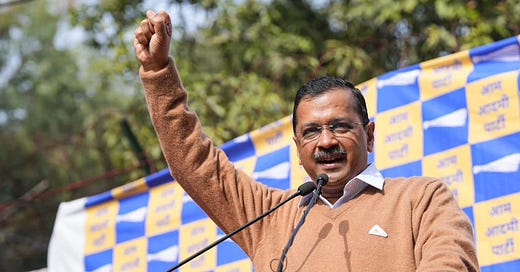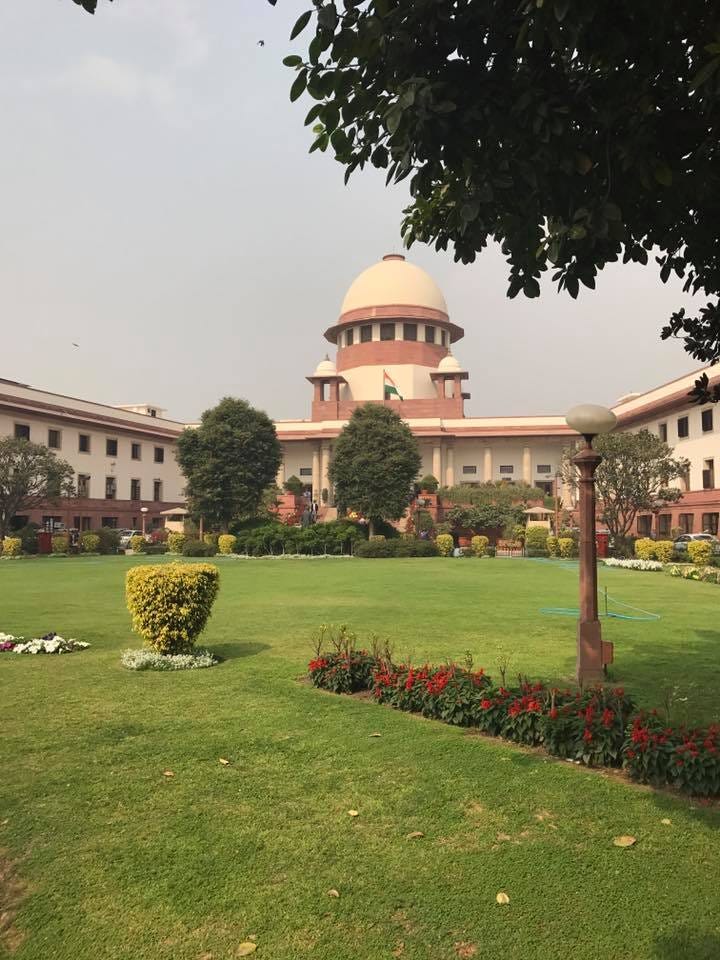Trump and Kejriwal's Legal Predicaments: Comparative Analysis
Indefinite incarceration pending investigation or even trial is not the hallmark of "due process of law" in a modern democracy.
Contrasting Legal Standards
The contrasting legal situations of Donald Trump and Arvind Kejriwal provide a striking comparison between the judicial processes in the United States and India. Despite being a convicted felon on 34 counts, Trump may not go to jail until his sentencing on 11 July— even then, he may be let off on probation. Conversely, Arvind Kejriwal is set to surrender on 2 June as his interim bail, exceptionally granted by the Supreme Court of India, expires today. This stark difference highlights the nuances and complexities within both legal systems, raising important questions about the principles of justice and personal liberty, especially with reference to the India legal system.
Personal Liberty and Constitutional Rights
I may be no great fan of Arvind Kejriwal and his politics, but I am compelled to aver that his potentially indefinite detention, even before the trial has commenced and with investigations by the CBI and ED still ongoing, challenges the spirit, if not the letter, of Articles 20 and 21 of the Indian Constitution. These articles safeguard personal liberty and the right to a fair trial. The prolonged pre-trial detention of an individual, especially when investigations are incomplete, raises significant concerns about the protection of fundamental rights.
Section 41A of the CrPC: A Critical Examination
Section 41A of the CrPC aims to prevent unnecessary arrests, mandating that arrests should not be made routinely. However, the provision allowing a police officer to arrest without a warrant, "for reasons to be recorded in writing," undermines this objective. This exception often defeats the purpose of Section 41A, leading to potential misuse and arbitrary detention and arrest.
The Stringent Framework of the PMLA
Under Section 19 of the PMLA, the threshold for arrest is higher, reflecting the Supreme Court’s decision in the Vijay Madanlal Chaudhary case, which upheld the constitutionality of the Prevention of Money Laundering Act, 2002. Despite this, the arrest is expected to be exceptional due to the stringent consequential bail conditions under Section 45 of the PMLA. The requirement for a judge— whether of the trial court or the constitutional courts— to be satisfied that the accused did not commit money laundering and will not do so in the future is almost impossible to meet, especially in early investigation stages or even in the cases of ongoing trials.
Supreme Court's Relaxations and the Need for Reform
The Supreme Court has provided some relief by ruling that if the ED does not arrest an accused until the filing of the charge-sheet (its criminal complaint), the Special PMLA Court need not satisfy the twin conditions of Section 45 while granting bail, or bond for appearance. Additionally, if a person has been incarcerated for more than half the maximum punishment under the PMLA (which is seven years), they are entitled to bail without the rigorous conditions of Section 45. However, these relaxations highlight the need for more comprehensive reforms to ensure that detention remains an exception rather than the rule.
Proposals for Fairer Procedures
To ensure fairer legal procedures, it is proposed that arrests should not be permitted unless proceeds of crime have been identified and attached by the ED. While the objective of arrests is often to uncover the money trail, the custody should be for a limited period. Judicial custody, pending trial or during the trial, serves no investigative purpose. Therefore, once ED custody ends, bail should be granted unless the charge-sheet (criminal complaint) is filed within six months or the trial is completed, say, within a year. The process should not become a punishment in itself, as prolonged incarceration without timely investigation or trial is inherently unfair.
The Broader Implications for Indian Democracy
As Arvind Kejriwal prepares to head to Tihar Jail, this situation calls for a wider debate on personal liberty in criminal cases, especially under the PMLA. None of these offences carry the death penalty or life imprisonment, and the Indian democracy should strive not only to be the largest but also one that zealously respects individual liberty and dignity as envisaged in the Preamble to the Indian Constitution.
Summing Up
The legal predicaments of Donald Trump and Arvind Kejriwal underscore the importance of balancing law enforcement with the protection of personal liberty. While no individual, no matter how highly placed, should be above the law, the procedure established by law itself must be fair, just, and equitable. Stringent laws are necessary to combat serious crimes like money laundering, but they must also ensure that the rights and dignity of individuals are not compromised. It is crucial to recognise that months or years of judicial custody equate to taking away a significant portion of a person's natural life, which cannot be adequately compensated if they are ultimately not convicted. As India moves forward, it is essential to uphold the principles of justice and fairness, ensuring that the legal process respects personal liberty and the constitutional rights of every citizen.






